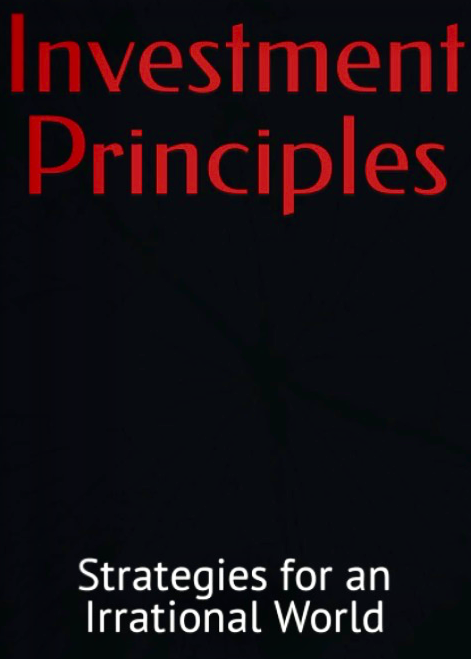My new book, “Investment Principles: Strategies for an Irrational World” (Amazon link: Investment Principles: Strategies for an Irrational World.) looks at what’s really required for successful investing. While most authors try to give quick and effortless tips, I believe that a disciplined and methodical approach to investing is essential for true success. This means analytical work and an understanding that goes far beyond a simple summary description.
Successful investing requires understanding global economics, competitive, corporate, and micro-level analysis, game theory, and human emotions and behavior. That’s a lot to understand all at once but can be approached by segmenting each of these complex topics, giving sufficient depth to understand what is fundamentally going on in each area, and then, most valuably, show how these areas interact, enabling much more effective investment decision making.
The goal is to share an informed and distinctive way to think, predict the future with that combined information, and then make choices. Investment success combines predicting the future, the confidence to make bold choices, and the fortitude to stay with those choices.
Looking at the first component, analyzing data ranging from economic analysis, global statistics on finance and trade, along with elements of human behavior and, quite bluntly, irrationality, form the combination that gives an understanding about what is going to happen.
Next, understanding that difficult choices need to be made and that diversification is equivalent to owning an index fund (so why bother going any further if that is really your goal?), knowing that focused investment choices require bold commitments. But, once these bold choices are made, the real challenge begins.
The most critical component of this complete process is having the fortitude to stick with your choices. Most bad investment decisions are made when an investor sells. For example, if we look at both Amazon and Apple, at what point should an investor have sold these stocks? They continue to be fantastic investments outperforming the market. So, even if an investor chalks up an impressive return, selling that investment and putting performance on the books is a bad and inefficient investment decision.
The best decisions come from complex analysis, difficult choices, and then fortitude to stick with those choices. There is no better way to summarize an effective investment strategy.

